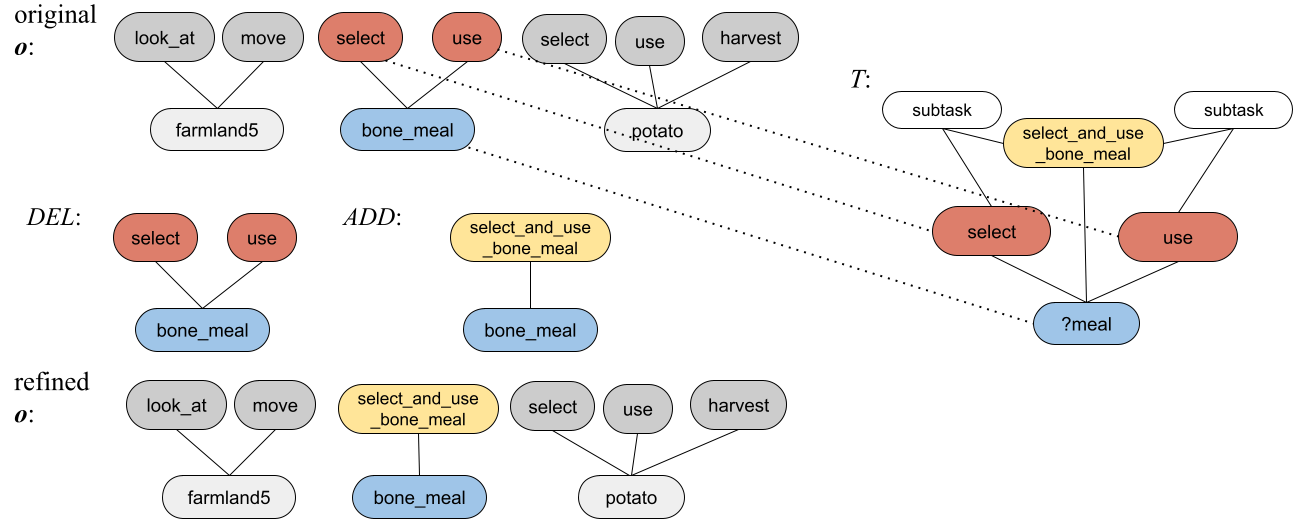Analogical processes are cognitive mechanisms that are essential for human intelligence and seperates us from other intelligent creatures. Building aritificial intelligence with analogical reasoning allows us to harness the power of a mechanism core to human cognition. Most of the research projects listed below leverage analogical reasoning. In particular, we use Structure Mapping Theory (SMT), a theory of analogy developed by Dedre Gentner. In SMT, similarities are found through a process of finding an analogy, where the structures and relations of representations align. Based on these alignments, we can find inferences and generalizations.
Logical Reasoning
The Repeated Analogy for Goal Reasoning (RAGeR) algorithm uses a sequence of analogical inferences to make deductive and abductive inferences. The algorithm uses a forward chaining of inferences, searching for a specified goal. The algorithm when applied with incomplete knowledge makes assumptions about the missing knowledge when the missing knowledge is structurally consistent with the given knowledge.

Collaborators
Prof. Irina RabkinaGoal Recognition
Goal recognition is a process of inferring an agent's goals based on observing its actions. We use two algorithms: one based on the Analogical Theory of Mind (AToM) model, and one using the Repeated Analogies for Goal Recognition. One of the domains used to explore these algorithms is an agent in Minecraft that is gathering materials to make or obtain goods.
